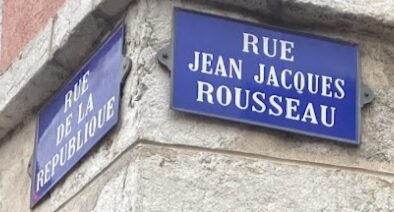Non gridate più
Per concludere l’anno, il docente di Diritto chiese ad ognuno di noi di realizzare un video della durata di massimo due minuti in cui presentiamo creativamente uno dei primi 54 articoli della Costituzione Italiana. Il compito ci lasciava carta completamente bianca, e totale libertà creativa.
Io, ho scelto quello che ritengo come uno degli articoli più significativi tra i Principi Fondamentali, specialmente quando si tiene in conto il periodo in cui è stata elaborata la Costituzione. Si tratta dell’Articolo 11:
Articolo 11, Costituzione Italiana
“L’Italia ripudia la guerra come strumento di offesa alla libertà degli altri popoli e come mezzo di risoluzione delle controversie internazionali; consente, in condizioni di parità con gli altri Stati, alle limitazioni di sovranità necessarie ad un ordinamento che assicuri la pace e la giustizia fra le Nazioni; promuove e favorisce le organizzazioni internazionali rivolte a tale scopo.”
La ragione per cui ho deciso di trattare questo articolo si cela proprio dietro al contesto storico in cui è stato scritto. Dopo la fine della guerra, i 75 membri dell’Assemblea Costituente si riunirono per elaborare minuziosamente le parole giuste con cui sancire i valori, i diritti e i doveri fondamentali della Repubblica Italiana. Dopo anni di dittatura e guerra, i costituenti, stanchi dell’odio che non divideva solo l’Italia ma anche i vari stati del mondo. Questo articolo è fondamentale per il mondo intero, con cui l’Italia sancisce i rapporti internazionali negando la possibilità di un attacco bellico.
La parte dell’articolo che più mi ha colpito è il verbo principale, una parola importante: ripudio. Il dizionario Treccani definisce ripudio come “l’azione, l’atto e il fatto di rifiutare chi è legato a noi affettivamente o socialmente”. In effetti, nella prima metà del 1900 la guerra era diventata legata affettivamente agli italiani, così come alla maggior parte dei popoli europei. Ma le conseguenze della Seconda Guerra Mondiale hanno “aperto gli occhi” alla maggior parte degli interventisti. Questo ciclo di odio che accompagnava la nostra nazione doveva finire, e l’Italia, in quanto paese unito, doveva mettere per iscritto il suo ripudio nei confronti della guerra.






